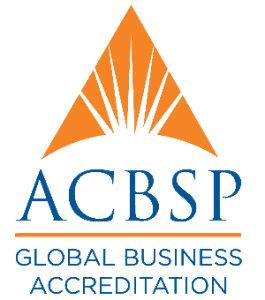Accreditation
Westcliff University
Westcliff University is proud to share the approval and accreditations earned for the exceptional programs in our College of Business, College of Education, and College of Technology and Engineering.
As an accredited university, all of the degrees and certificates awarded by Westcliff University are accredited. So as to ensure the highest possible academic standards, these programs have been through an intensive and careful evaluation process led by university faculty and leadership.
Accreditation is an assurance to the student that the school has qualified professors, offers approved programs of study, has adequate equipment and technology, operates on a sound financial basis, and utilizes approved recruitment and admission policies.
Accreditation is an assurance of quality. In the field of education, an accredited university must verify that its programs and administrative processes meet standards established by the U. S. Department of Education and regulated by approved accrediting agencies. The Department of Education states that beyond an assurance of quality, two major functions of accreditation are “assisting prospective students in identifying acceptable institutions” and “assisting institutions in determining the acceptability of transfer credits.”



WASC Senior College and University Commission (WSCUC)
Westcliff University is accredited by the WASC Senior College and University Commission (WSCUC), 1080 Marina Village Parkway, Suite 500, Alameda, CA 94501, 510.748.9797. WSCUC is an institutional accrediting body recognized by the U.S. Department of Education (ED) and the Council on Higher Education Accreditation (CHEA).
Accreditation Council for Business Schools and Programs (ACBSP)
Westcliff University College of Business is accredited by the Accreditation Council for Business Schools and Programs (ACBSP). Founded in 1988, ACBSP ignites a standard of excellence with an accreditation process based on the Baldrige Education Criteria for Performance Excellence. ACBSP accreditation focuses on recognizing teaching excellence, determining student learning outcomes, and a continuous improvement model. Institutions with programs accredited by ACBSP are committed to continuous improvement that ensures their business program will give students the skills employers want. To learn more, please visit the ACBSP website.
Council for Higher Education Accreditation (CHEA)
Westcliff University is listed on the Council for Higher Education Accreditation (CHEA) listing of accredited universities. Additionally, Westcliff University is an actively accredited institutional member of CHEA. CHEA is a private nonprofit national organization that coordinates accreditation activity in the United States. CHEA — a national advocate and institutional voice for self-regulation of academic quality through accreditation — is an association of 8,200 degree-granting colleges and universities. Institutional membership is limited to accredited colleges and universities.
To learn more, please visit: Council for Higher Education Accreditation
Bureau for Private Postsecondary Education (BPPE)
Westcliff University is a private institution and has been granted approval to operate by the California Bureau for Private Postsecondary Education (Bureau for Private Postsecondary Education 2535 Capitol Oaks Drive, Suite 400 Sacramento, CA 95834, www.bppe.ca.gov, Toll-free phone: 1.888.370.7589).
Western State College of Law
American Bar Association (ABA)
Council of the Section of Legal Education and Admissions to the Bar of the American Bar Association, 321 North Clark Street, Chicago, IL 60654, 312-988-6738.
For more information about our American Bar Association (ABA) accredited College of Law, visit https://www.wsulaw.edu/prospective-students/accreditation/.
-
The Significance of Accreditation
Attending an accredited institution of higher learning ensures that the educational programs and outcomes offered to meet the highest standards. Institutions seek accreditation as a means to validate the quality of the programs and services they provide. Accredited universities maintain a high level of transparency in their operations and offer learners a diverse array of student services that protect student rights, advance student success, and result in well-educated, qualified graduates.
Students can be sure that Westcliff University, as accredited by ACBSP and WSCUC, adheres to the highest standards and is dedicated to constant institutional improvement.
-
The Process of Accreditation
Accreditation is the process of giving public recognition to institutions that meet specific standards.
Accreditation is a process of validation in which colleges, universities and other institutions of higher learning are evaluated. The standards for accreditation are set by a peer review board whose members include faculty from various accredited colleges and universities. The board aids in the evaluation of each potential new school accreditation or the renewals of previously accredited colleges/schools.
The external review is the hallmark of the accreditation process. It energizes and equips the leadership and stakeholders of an institution or school system to tackle those areas that may be thwarting desired performance levels.
Accreditation is inextricably linked to institutional and educational system improvement. The accreditation process requires institutions of higher education to evaluate critically their vision, strategies, priorities, leadership, and programs and resources. The process of earning and maintaining accreditation provides institutions and educational systems with clear and compelling direction for implementing changes to move toward excellence.
The accreditation process is also known in terms of its ability to effectively drive student performance and continuous improvement in education.
While accreditation is normally a set of rigorous protocols and research-based processes for evaluating an institution’s organizational effectiveness, it is also far more than that. Today the accreditation process examines the whole institution—the programs, the cultural context, the community of stakeholders—to determine how well the parts work together to meet the needs of students.
Accreditation is both a significant achievement pronouncing Westcliff’s quality of education and a remarkably enriching process for Westcliff University in recognizing the tremendous competitive and performance gains it provides to its students.
According to the United States Department of Education (USDE), “the goal of accreditation is to ensure that education provided by institutions of higher education meets acceptable levels of quality” (p. 1). While the USDE “does not accredit educational institutions and/or programs…the Secretary of Education is required by law to publish a list of nationally recognized accrediting agencies that the Secretary determines to be reliable authorities as to the quality of education or training provided by the institutions of higher education and the higher education programs they accredit.” The accrediting agencies approved by the Secretary of Education “are private educational associations of regional or national scope… [that] develop evaluation criteria and conduct peer evaluations to assess whether or not those criteria are met.”
It is the responsibility of these accrediting agencies, such as ACBSP and WSCUC, to “conduct a continuous review of standards, policies, procedures, and issues in the area of the Department of Education’s interests and responsibilities relative to accreditation” and ensure that these standards are maintained by institutions accredited by that agency. Institutions accredited by the accrediting agencies must verify that their programs meet established standards and that their ongoing assessments are geared toward continuous improvement. Accredited institutions must demonstrate adherence to the established standards and a dedication to continuous improvement during the periodic re-evaluation process.








